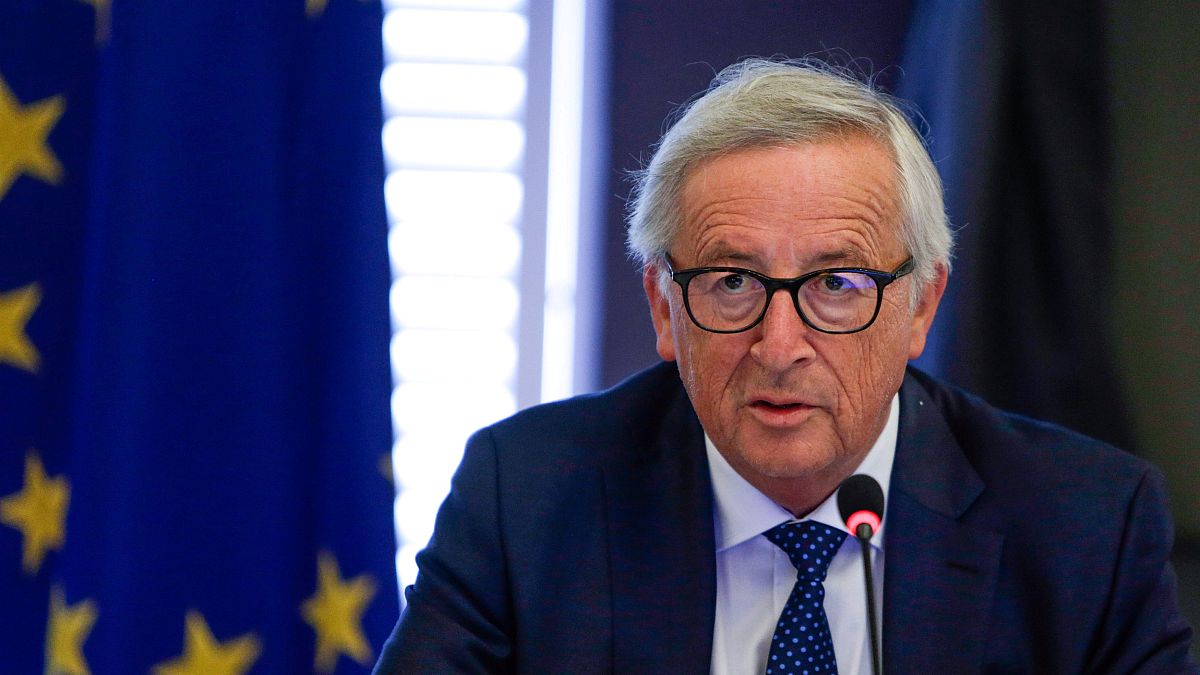How do you rate what was most important in Juncker's 14-page, 50-minute long State of the Union speech? Euronews analysed the address to find out which words he repeated most, thus revealing what matters most to him.
European Commission President Jean-Claude Juncker delivered his fourth — and final — annual State of the Union speech on Wednesday, in which he laid out his vision for a "stronger and more united" Europe.
Juncker touched on topics ranging from nationalism and Brexit to geopolitics, migration and the euro.
But how do you rate what was most important in Juncker's 14-page, 50-minute long speech? Euronews analysed the address to find out which words he repeated most, thus revealing what matters most to him.
This year's State of the Union
The most-used words can be disregarded. It's hardly surprising that a speech on the European Union delivered by the Commission President would make liberal use of the words "European", "Europe", "Union", "Commission", "member" and states".
The words "united" and "today" are a bit more revealing. Juncker made several appeals for unity and "solidarity" between the different European nations during his address, especially when it comes to trade deals, geopolitics and migration.
"Today's world needs a strong, united Europe," he said.
"Borders" also featured prominently as member states continue to squabble over the best way to tackle the migrant and refugee crisis.
More interestingly, the Commission President did not once utter the word "populism" — a recurring theme in recent elections across the continent — but instead expanded on the bloc's "sovereignty" as well as its duties and "responsibility" on the "international" stage.
"The geopolitical situation makes this Europe's hour: the time for European sovereignty has come. It is time Europe took its destiny into its own hands," is the key quote here.
Some other note-worthy words:
- "elections": the EU Parliament election will take place next year;
- "Africa": few non-European places made the cut but Africa got a special shout-out. Juncker described the continent as "the future" and pushed for deeper partnerships.
The three preceding years
So how does this year's edition compares to Juncker's three previous speeches?
In a way, the 2017 and 2016 speeches are very similar: Unity and solidarity also formed one of the main themes. The economy was also slightly more expanded upon in 2016 as words like "invest" and "billion" can attest.
But 2015 is a real departure. Some of the most-used words included "refugee", "asylum", "crisis", "Greece" and "euro". At the time, the migrant and refugee crisis was at its peak, exposing and widening cracks between member states over the best policy to adopt to handle the influx of people.
Greece had also just voted in a referendum to decide whether to accept the bailout conditions laid down by its creditors. The country was still in the midst of a persistent recession that continued to threaten the survival of the euro single currency.
